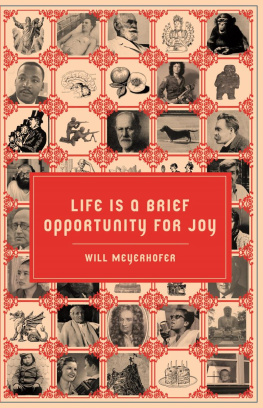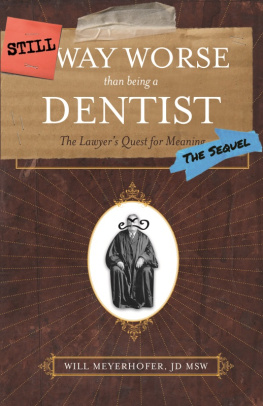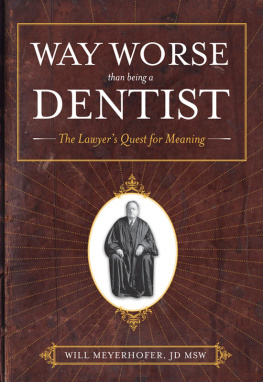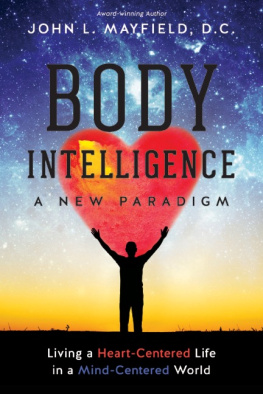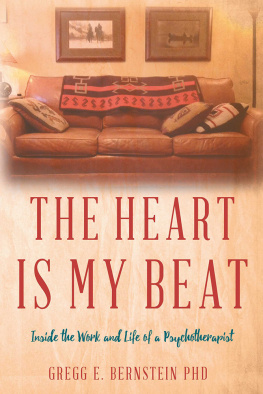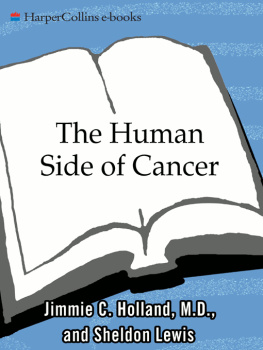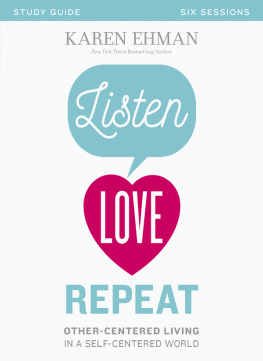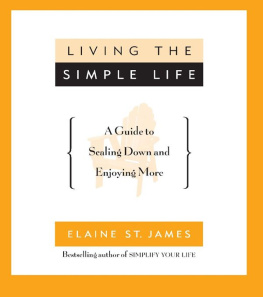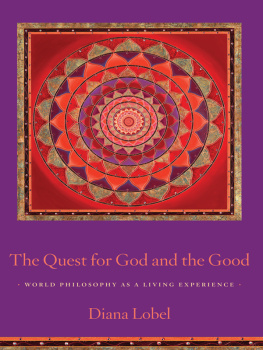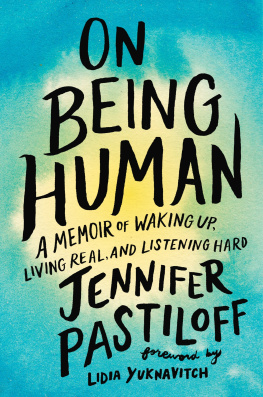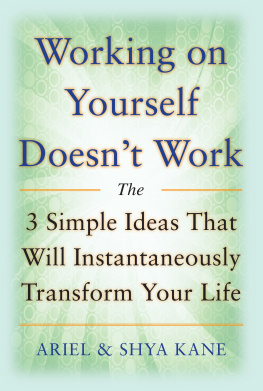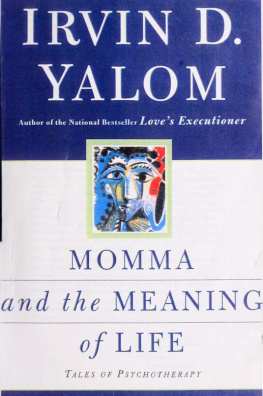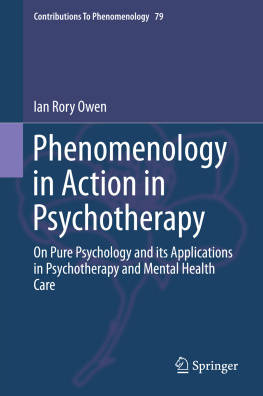Copyright 2010 by Will Meyerhofer
All rights reserved.
ISBN-10: 1-936400-89-8
ISBN-13: 978-1-936400-89-8
Mill City Press
212 3rd Avenue North, Suite 290
Minneapolis, MN 55401
Publish Green Edition
www.publishgreen.com
All rights reserved. No part of this publication may be reproduced, stored in a retrieval system, or transmitted, in any form or by any means, electronic, mechanical, photocopying, recording, or otherwise, without the written prior permission of the author.
For William Yan To Kwok,
my partner as we make our way forward,
hand in hand.
This book is a guide to discovering joy, the simple pleasure of living each day.
I am a psychotherapist, with an office in New York City. As I work with patients and listen to their stories, I search for themes that define the human condition.
These themes have melded into a philosophy centered upon living with joy.
No book can substitute for the process of psychotherapy.
But I hope these ideas will introduce you to the work of self-discovery at the heart of that experience.
There are a lot of ideas in this short book. It might take some re-reading to digest them completely.
My sources are numerous and varied. I've drawn on the work of psychoanalysts I admire - people like Theodor Reik, Hyman Spotnitz, Louis Ormont, Fritz Perls and, of course, Sigmund Freud. There is a bit of neuroscience and evolutionary psychology, too, and smatterings of philosophy, literature, poetry and Buddhism.
Some ideas and much of the synthesis are original, inspired by my work with patients.
I encourage you to take a break from reading from time to time, and let your mind drift off into your own thoughts.
I have organized this book into two parts.
Part One focuses on becoming more conscious, and the process of discovering your best self, so you can take the role of the actor in your life instead of the audience.
Part Two explores the three elements of every life - playing, working and loving. Mastering these challenges brings joy to the life you lead.
This book and my work as a psychotherapist are about love. I care deeply about my patients and the work we do together.
I aspire to be your companion in a conversation and on a journey.
I hope you will pick up this book and learn a bit about joyful living, then perhaps share it with a friend, and pass on this gift.

CHAPTER 1
Become Your Best Self
A lot of people don't like themselves.
As a therapist, I ask that question a lot - do you like who you are? It grieves me to hear the same answers over and over:
I don't like who I am.
There's something wrong with me.
I feel like a fake.
I can't do anything right.
I'm a loser.
On and on.
I like people. I try to see what's best in them. Most of the time, when I don't click with somebody or I find them hard to be with, it's because they don't really know themselves. They are unaware of the feelings bombarding them, the patterns they are unknowingly playing out.
There is a French saying: Tout comprendre, tout pardonner.
To understand completely is to forgive completely.
Becoming conscious of who you are - your authentic, best self - and how you think and feel, permits you to follow this prescription.
First you understand yourself. Then you forgive yourself.
Then you can move on to love and care for yourself and others.
Do you like yourself?
If you know your best self, then the answer has to be yes, because you are in control of that identity. That's the person you want to be, the person you are starting to be right now.
The problem with unconscious living is that you aren't there, you're on auto-pilot. You might not like the person who takes over, but you can't rein him in, since you disappear when he shows up.
I blanked out.
I don't know what got into me.
Behind these excuses lies the fact that you ceded control. You were no longer the actor in your life, but a member of the audience.
Awareness brings out the best self. You show who you truly are when you start making the decisions, wide awake and in control.
Be your best self, right now. A lot of things will change. As they say in twelve-step: It isn't easy, but it's simple. Patients tell me it's too late for them. I tell them they're right - we'll wait until next year, when you're younger.
The time is now. You can change.
Awake to conscious living. Stop shutting down or avoiding or wearing a mask. Exist in the moment. Your best self is you.
Charles Dickens summarized the process of psychotherapy - oddly enough - in A Christmas Carol.
Whether you read the book, saw the Scrooged version with Bill Murray or the Disney version with Scrooge McDuck, it's all the same story.
Scrooge hoards money, yells at people who work for him and is generally an unpleasant person.
Christmas Eve brings ghosts representing his past, present and future, who visit Scrooge and review the events of his life.
He has an "ah-ha moment."
The next morning he races to show the world his best self, wishing everyone a Merry Christmas and buying a turkey for Tiny Tim.
He seems like a new guy - but in fact, that's the real Scrooge.
He was made aware of himself.
Awareness creates change.
That's the process of psychotherapy.
When you check out and become unconscious, unexamined feelings take over. These are emotions you don't wish to acknowledge, feel you shouldn't have or don't know are there.
You can act-out or act-in on these feelings.
Acting-out means going into action:
Smashing your fist on the table.
Acting-in means shutting down:
Refusing to answer the phone.
In some families, children learn to act-out. Their parents model it for them, and they imitate - yelling, slamming doors and breaking things.
Other kids learn to act-in - ignoring their schoolwork, hiding in their bedrooms.
These lessons stay with you.
If you are acting on an unconscious emotion, chances are you're angry.
Anger is the oldest, most primitive emotion.
Sometimes you don't want to be angry. You just are.
You can care very deeply for someone, and still be angry at him.
You might not even know why.
Anger is not rational and it doesn't need a reason. It just is.
Sometimes you want to put on dark glasses and a black leather jacket.
Get on a motorcycle. Be the tough guy.
It is tempting. Seems like fun.
It's just anger.
Discharging unconscious anger feels good.
That's why we live in a violent world.
We are not accustomed to admitting that discharging anger is gratifying.
It makes people nervous.
But it also makes good Darwinian, evolutionary sense that releasing aggression would feel good, since animals who enjoy fighting off predators survive to pass on their genes. It's the same principle that explains why sex feels good.
Next page
